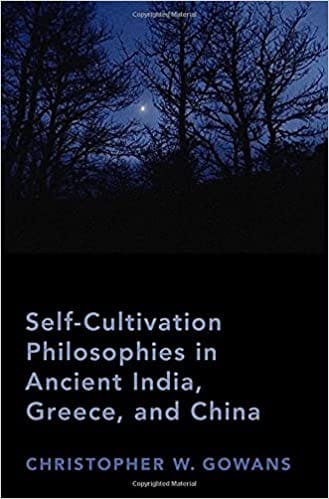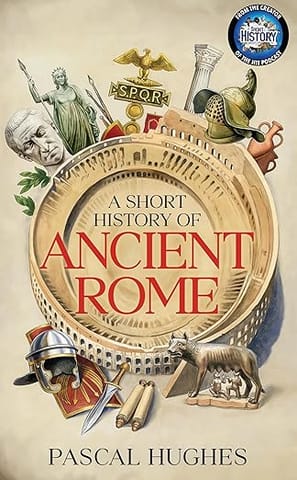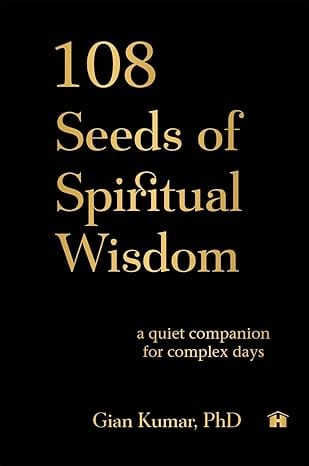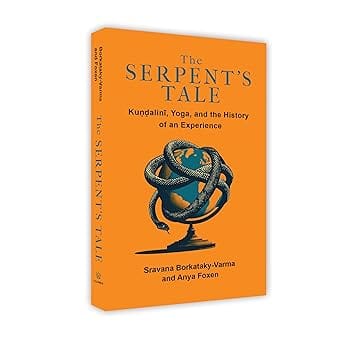WELCOME TO MIDLAND BOOK SHOP!
SHOP FOR
- Non-ficton
- Non-ficton
- Contemporary Fiction
- Contemporary Fiction
- Children
- Children
- Comics & Graphic Novels
- Comics & Graphic Novels
- Non-Fiction
- Non-Fiction
- Fiction
- Fiction
Shop No.20, Aurobindo Palace Market, Hauz Khas, Near Church +91 9818282497 | 011 26867121 110016 New Delhi IN
Midland The Book Shop ™
Shop No.20, Aurobindo Palace Market, Hauz Khas, Near Church +91 9818282497 | 011 26867121 New Delhi, IN
+919871604786 https://www.midlandbookshop.com/s/607fe93d7eafcac1f2c73ea4/677cda367903fd013d69b606/without-tag-line-480x480.png" [email protected]9780197640944 61eff425a797e80976783aea Self-cultivation Philosophies In Ancient India Greece And China https://www.midlandbookshop.com/s/607fe93d7eafcac1f2c73ea4/61eff426a797e80976783afb/41iyevuy76l-_sx327_bo1-204-203-200_.jpg 9780197640944
Philosophies in several ancient traditions aimed to alleviate people's anxieties and improve their lives. In contrast to the contemporay world, in which philosophy is mostly an academic subject and personal concerns are commonly addressed by psychological therapies, philosophy in these traditions often played a central role in programs that aspired to enable people to achieve a good life. In this volume, Christopher W. Gowans argues that the idea of self-cultivation philosophy provides a valuable approach for comprehending and reflecting on several philosophies in ancient India, Greece and China.
Self-cultivation philosophies put forward a program of development for ameliorating the lives of human beings. On the basis of an account of human nature and the place of human beings in the world, they claim that our lives can be substantially transformed from what is thought to be a problematic condition into what purports to be an ideal state of being. Self-cultivation philosophies are preeminently practical in their aspirations: their purpose is to change human life in fundamental ways. Yet, in pursuing these practical ends, these philosophies typically make significant theoretical as well as empirical claims about human nature and the world.
The book shows how the concept of self-cultivation philosophy provides an interpretive framework for understanding, comparing, assessing and learning from several philosophical outlooks in India, the Greco-Roman world, and China. The self-cultivation philosophies in India are those expressed in: the Bhagavad Gita; the Samkhya and Yoga philosophies of Isvarakrsna and Patanjali; and the teaching of the Buddha and his followers Buddhaghosa and Santideva. The philosophies originating in Greece, with subsequent development in the Roman world, are the most prominent Hellenistic approaches: the Epicureanism of Epicurus, Lucretius, and Philodemus; the Stoicism of Chrysippus, Epictetus, and Seneca; and Pyrrho and the Pyrrhonism of Sextus Empiricus. The self-cultivation philosophies from China are the early Confucian outlooks of Confucius, Mencius, and Xunzi; the classical Daoist perspectives of the Daodejing and the Zhuangzi; and the Chan tradition of Bodhidharma, Huineng and Linji. Though these philosophies developed in very different traditions, Gowans shows the connections between them in this compelling work of comparative philosophy.
Self-cultivation philosophies put forward a program of development for ameliorating the lives of human beings. On the basis of an account of human nature and the place of human beings in the world, they claim that our lives can be substantially transformed from what is thought to be a problematic condition into what purports to be an ideal state of being. Self-cultivation philosophies are preeminently practical in their aspirations: their purpose is to change human life in fundamental ways. Yet, in pursuing these practical ends, these philosophies typically make significant theoretical as well as empirical claims about human nature and the world.
The book shows how the concept of self-cultivation philosophy provides an interpretive framework for understanding, comparing, assessing and learning from several philosophical outlooks in India, the Greco-Roman world, and China. The self-cultivation philosophies in India are those expressed in: the Bhagavad Gita; the Samkhya and Yoga philosophies of Isvarakrsna and Patanjali; and the teaching of the Buddha and his followers Buddhaghosa and Santideva. The philosophies originating in Greece, with subsequent development in the Roman world, are the most prominent Hellenistic approaches: the Epicureanism of Epicurus, Lucretius, and Philodemus; the Stoicism of Chrysippus, Epictetus, and Seneca; and Pyrrho and the Pyrrhonism of Sextus Empiricus. The self-cultivation philosophies from China are the early Confucian outlooks of Confucius, Mencius, and Xunzi; the classical Daoist perspectives of the Daodejing and the Zhuangzi; and the Chan tradition of Bodhidharma, Huineng and Linji. Though these philosophies developed in very different traditions, Gowans shows the connections between them in this compelling work of comparative philosophy.
Review
Christopher Gowans delivers a compelling and elucidating account of self-cultivation as an interpretive framework enriched through three traditions of India, Greece and China. This prolific and comprehensive form of fusion philosophy creates a distinctive space for a deeper philosophical reflection and illuminates an inimitable variety of the modes of understanding that grounds our existential starting point for a human flourishing. Highly recommend this landmark work! - Robin R. Wang, Loyola Marymount University, author of Yinyang: The Way of Heaven and Earth in Chinese (Cambridge University Press, 2012)
An insightful and accessible introduction to the three major wisdom traditions of antiquity, Gowans' work can also serve as an attractive entry into the study of philosophy overall. For those already familiar with the many sources skillfully presented here, Self-Cultivation Philosophies in Ancient India, Greece, and China will offer a welcome meeting with old friends anew. - Matthew Kapstein, The University of Chicago and Ecole Pratique des Hautes Etudes, Paris
We'd all like to change ourselves for the better. Using this kind of self-cultivation as a lens, Gowans guides you through classic ancient philosophies from around the globe. Informed by current scholarship, Self-Cultivation Philosophies in Ancient India, Greece, and China draws new connections between classic texts, making them both practical and approachable. - Nic Bommarito, Simon Fraser University, author of Seeing Clearly: A Buddhist Guide to Life (Oxford University Press, 2020)
An insightful and accessible introduction to the three major wisdom traditions of antiquity, Gowans' work can also serve as an attractive entry into the study of philosophy overall. For those already familiar with the many sources skillfully presented here, Self-Cultivation Philosophies in Ancient India, Greece, and China will offer a welcome meeting with old friends anew. - Matthew Kapstein, The University of Chicago and Ecole Pratique des Hautes Etudes, Paris
We'd all like to change ourselves for the better. Using this kind of self-cultivation as a lens, Gowans guides you through classic ancient philosophies from around the globe. Informed by current scholarship, Self-Cultivation Philosophies in Ancient India, Greece, and China draws new connections between classic texts, making them both practical and approachable. - Nic Bommarito, Simon Fraser University, author of Seeing Clearly: A Buddhist Guide to Life (Oxford University Press, 2020)
About the Author
Christopher W. Gowans is Professor of Philosophy at Fordham University, where he has served as Chair of the Philosophy Department. He works in moral philosophy, with interests in the implications of moral diversity and moral conflicts as well as ancient philosophical traditions in various cultures, especially Buddhism. He is the editor of Moral Dilemmas (Oxford University Press, 1987) and author of Innocence Lost: An Examination of Inescapable Moral Wrongdoing (Oxford University Press, 1994). In more recent years, he has written Philosophy of the Buddha (2003) and Buddhist Moral Philosophy: An Introduction (2014), both for Routledge.
out of stock INR 956
1 1
Email ID already exists!
Your Current password is incorrect
Password Updated Successfully
Thanks for your Feedback
- Home
- Non-Fiction
- Self-cultivation Philosophies In Ancient India Greece And China
Self-cultivation Philosophies In Ancient India Greece And China
ISBN: 9780197640944
₹956
₹1,195 (20% OFF)SIZE GUIDE
Back In Stock Shortly - Fill The Book Request Form
Sold By: Hauz Khas - Aurobindo Market
Details
- ISBN: 9780197640944
- Author: Christopher W Gowans
- Publisher: Oxford
- Pages: 344
- Format: Hardback
Book Description
Philosophies in several ancient traditions aimed to alleviate people's anxieties and improve their lives. In contrast to the contemporay world, in which philosophy is mostly an academic subject and personal concerns are commonly addressed by psychological therapies, philosophy in these traditions often played a central role in programs that aspired to enable people to achieve a good life. In this volume, Christopher W. Gowans argues that the idea of self-cultivation philosophy provides a valuable approach for comprehending and reflecting on several philosophies in ancient India, Greece and China.
Self-cultivation philosophies put forward a program of development for ameliorating the lives of human beings. On the basis of an account of human nature and the place of human beings in the world, they claim that our lives can be substantially transformed from what is thought to be a problematic condition into what purports to be an ideal state of being. Self-cultivation philosophies are preeminently practical in their aspirations: their purpose is to change human life in fundamental ways. Yet, in pursuing these practical ends, these philosophies typically make significant theoretical as well as empirical claims about human nature and the world.
The book shows how the concept of self-cultivation philosophy provides an interpretive framework for understanding, comparing, assessing and learning from several philosophical outlooks in India, the Greco-Roman world, and China. The self-cultivation philosophies in India are those expressed in: the Bhagavad Gita; the Samkhya and Yoga philosophies of Isvarakrsna and Patanjali; and the teaching of the Buddha and his followers Buddhaghosa and Santideva. The philosophies originating in Greece, with subsequent development in the Roman world, are the most prominent Hellenistic approaches: the Epicureanism of Epicurus, Lucretius, and Philodemus; the Stoicism of Chrysippus, Epictetus, and Seneca; and Pyrrho and the Pyrrhonism of Sextus Empiricus. The self-cultivation philosophies from China are the early Confucian outlooks of Confucius, Mencius, and Xunzi; the classical Daoist perspectives of the Daodejing and the Zhuangzi; and the Chan tradition of Bodhidharma, Huineng and Linji. Though these philosophies developed in very different traditions, Gowans shows the connections between them in this compelling work of comparative philosophy.
Self-cultivation philosophies put forward a program of development for ameliorating the lives of human beings. On the basis of an account of human nature and the place of human beings in the world, they claim that our lives can be substantially transformed from what is thought to be a problematic condition into what purports to be an ideal state of being. Self-cultivation philosophies are preeminently practical in their aspirations: their purpose is to change human life in fundamental ways. Yet, in pursuing these practical ends, these philosophies typically make significant theoretical as well as empirical claims about human nature and the world.
The book shows how the concept of self-cultivation philosophy provides an interpretive framework for understanding, comparing, assessing and learning from several philosophical outlooks in India, the Greco-Roman world, and China. The self-cultivation philosophies in India are those expressed in: the Bhagavad Gita; the Samkhya and Yoga philosophies of Isvarakrsna and Patanjali; and the teaching of the Buddha and his followers Buddhaghosa and Santideva. The philosophies originating in Greece, with subsequent development in the Roman world, are the most prominent Hellenistic approaches: the Epicureanism of Epicurus, Lucretius, and Philodemus; the Stoicism of Chrysippus, Epictetus, and Seneca; and Pyrrho and the Pyrrhonism of Sextus Empiricus. The self-cultivation philosophies from China are the early Confucian outlooks of Confucius, Mencius, and Xunzi; the classical Daoist perspectives of the Daodejing and the Zhuangzi; and the Chan tradition of Bodhidharma, Huineng and Linji. Though these philosophies developed in very different traditions, Gowans shows the connections between them in this compelling work of comparative philosophy.
Review
Christopher Gowans delivers a compelling and elucidating account of self-cultivation as an interpretive framework enriched through three traditions of India, Greece and China. This prolific and comprehensive form of fusion philosophy creates a distinctive space for a deeper philosophical reflection and illuminates an inimitable variety of the modes of understanding that grounds our existential starting point for a human flourishing. Highly recommend this landmark work! - Robin R. Wang, Loyola Marymount University, author of Yinyang: The Way of Heaven and Earth in Chinese (Cambridge University Press, 2012)
An insightful and accessible introduction to the three major wisdom traditions of antiquity, Gowans' work can also serve as an attractive entry into the study of philosophy overall. For those already familiar with the many sources skillfully presented here, Self-Cultivation Philosophies in Ancient India, Greece, and China will offer a welcome meeting with old friends anew. - Matthew Kapstein, The University of Chicago and Ecole Pratique des Hautes Etudes, Paris
We'd all like to change ourselves for the better. Using this kind of self-cultivation as a lens, Gowans guides you through classic ancient philosophies from around the globe. Informed by current scholarship, Self-Cultivation Philosophies in Ancient India, Greece, and China draws new connections between classic texts, making them both practical and approachable. - Nic Bommarito, Simon Fraser University, author of Seeing Clearly: A Buddhist Guide to Life (Oxford University Press, 2020)
An insightful and accessible introduction to the three major wisdom traditions of antiquity, Gowans' work can also serve as an attractive entry into the study of philosophy overall. For those already familiar with the many sources skillfully presented here, Self-Cultivation Philosophies in Ancient India, Greece, and China will offer a welcome meeting with old friends anew. - Matthew Kapstein, The University of Chicago and Ecole Pratique des Hautes Etudes, Paris
We'd all like to change ourselves for the better. Using this kind of self-cultivation as a lens, Gowans guides you through classic ancient philosophies from around the globe. Informed by current scholarship, Self-Cultivation Philosophies in Ancient India, Greece, and China draws new connections between classic texts, making them both practical and approachable. - Nic Bommarito, Simon Fraser University, author of Seeing Clearly: A Buddhist Guide to Life (Oxford University Press, 2020)
About the Author
Christopher W. Gowans is Professor of Philosophy at Fordham University, where he has served as Chair of the Philosophy Department. He works in moral philosophy, with interests in the implications of moral diversity and moral conflicts as well as ancient philosophical traditions in various cultures, especially Buddhism. He is the editor of Moral Dilemmas (Oxford University Press, 1987) and author of Innocence Lost: An Examination of Inescapable Moral Wrongdoing (Oxford University Press, 1994). In more recent years, he has written Philosophy of the Buddha (2003) and Buddhist Moral Philosophy: An Introduction (2014), both for Routledge.
User reviews
NEWSLETTER
Subscribe to get Email Updates!
Thanks for subscribing.
Your response has been recorded.

India's Iconic & Independent Book Store offering a vast selection of books across a variety of genres Since 1978.
"We Believe In The Power of Books" Our mission is to make books accessible to everyone, and to cultivate a culture of reading and learning. We strive to provide a wide range of books, from classic literature, sci-fi and fantasy, to graphic novels, biographies and self-help books, so that everyone can find something to read.
Whether you’re looking for your next great read, a gift for someone special, or just browsing, Midland is here to make your book-buying experience easy and enjoyable.
We are shipping pan India and across the world.
For Bulk Order / Corporate Gifting
 +91 9818282497 |
+91 9818282497 |  [email protected]
[email protected]
Click To Know More
INFORMATION
QUICK LINKS
ADDRESS
Midland Book Shop - Hauz Khas
Shop No.20, Aurobindo Palace Market, Near Church, New Delhi
Shop No.20, Aurobindo Palace Market, Near Church, New Delhi














